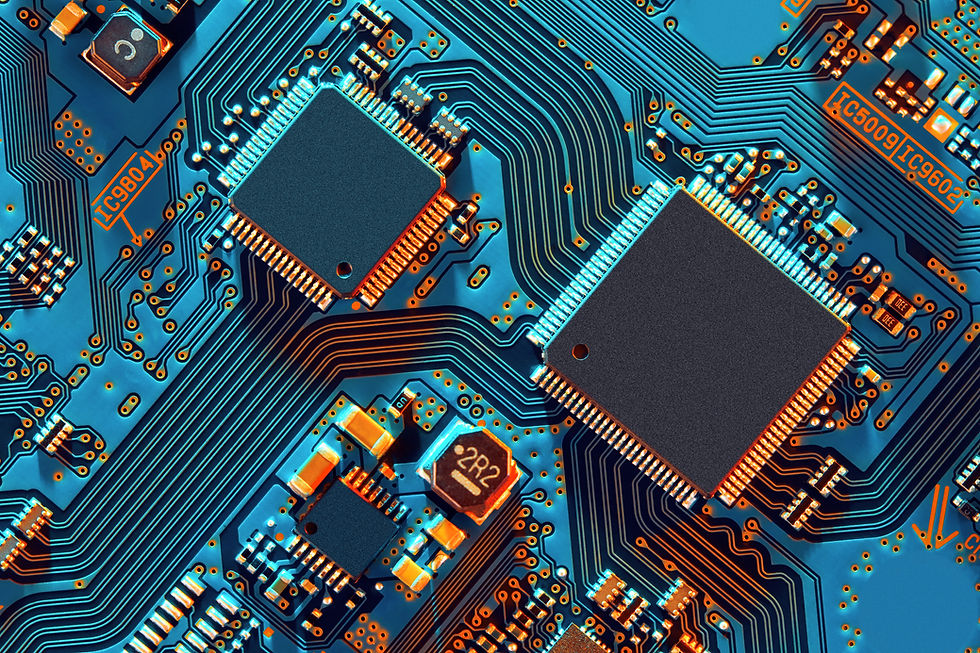
As we stand on the brink of a technological revolution that will fundamentally alter the way we live, work, and relate to one another, it's both exhilarating and daunting to ponder what the future holds. In an era marked by rapid advances, the "technologies of the future" are not just figments of our imagination or science fiction fantasies—they are tangible innovations that are shaping our reality. This article delves into a few groundbreaking technologies that promise to redefine our world in the coming years.
Quantum Computing: Beyond Binary

The realm of quantum computing presents a seismic shift from traditional computing. While classical computers use bits as the smallest unit of data, quantum computers use quantum bits, or qubits, which can represent and store information in a way that is not limited to the binary 1s and 0s of the digital world. This allows them to process complex data at unprecedented speeds. The implications of quantum computing are vast, with potential to revolutionize fields such as cryptography, material science, and complex system simulation. Though still in its nascent stages, quantum computing could one day solve problems deemed intractable for classical computers, opening new frontiers in research and technology.
Artificial Intelligence: The Brain Behind the Machine

Artificial Intelligence (AI) is perhaps the most pervasive of the future technologies, gradually embedding itself into all aspects of our daily lives. From sophisticated algorithms that personalize our online experiences to autonomous vehicles that promise to redefine transportation, AI's potential is boundless. The future of AI lies in its ability to learn and adapt, making decisions based on data analysis in real-time. This could lead to breakthroughs in healthcare, through personalized medicine, in environmental protection, by predicting and mitigating natural disasters, and in everyday convenience, by powering smart cities that anticipate and meet the needs of their inhabitants.
Biotechnology: Redefining Life Sciences

Biotechnology is on the cusp of transforming the life sciences sector, with CRISPR gene editing leading the charge. This technology allows for precise modifications to DNA, offering unprecedented opportunities in genetic diseases treatment, agriculture, and even synthetic biology. The future might see us effectively combat hereditary diseases, grow more resilient crops, and perhaps even create new forms of life. Ethical considerations abound, but the potential for positive impact is immense.
Renewable Energy Technologies: A Sustainable Future

As the global community becomes increasingly aware of the environmental impacts of fossil fuels, the push for renewable energy technologies has never been stronger. Solar and wind energy are becoming more efficient and affordable, but the future lies in harnessing less conventional sources, such as tidal and geothermal energy, and in improving energy storage technologies. Innovations like solid-state batteries and hydrogen fuel cells could solve the intermittency issues of renewables, paving the way for a cleaner, sustainable energy landscape.
Augmented and Virtual Reality: Blurring the Lines

Augmented Reality (AR) and Virtual Reality (VR) are set to transform the way we interact with digital content. Beyond their entertainment value, these technologies have practical applications in education, design, and healthcare, offering immersive experiences that enhance learning, creativity, and treatment. As AR and VR devices become more accessible, we can expect them to become an integral part of our digital lives, blurring the lines between the physical and digital worlds.
The Path Forward
The "technologies of the future" are not without their challenges. Ethical considerations, privacy concerns, and the potential for socioeconomic disparities must be carefully navigated to ensure these innovations benefit humanity as a whole. As we venture into this uncharted territory, it's crucial to foster a dialogue that includes technologists, policymakers, and the public to shape a future that reflects our shared values and aspirations.
In conclusion, the horizon of future technologies is vibrant and teeming with potential. From quantum computing to renewable energy, these innovations promise to redefine our world in profound ways. As we stand at the precipice of this technological frontier, it's clear that the future is not just something we passively await—it's something we actively shape, through the choices we make and the technologies we embrace.


Comments